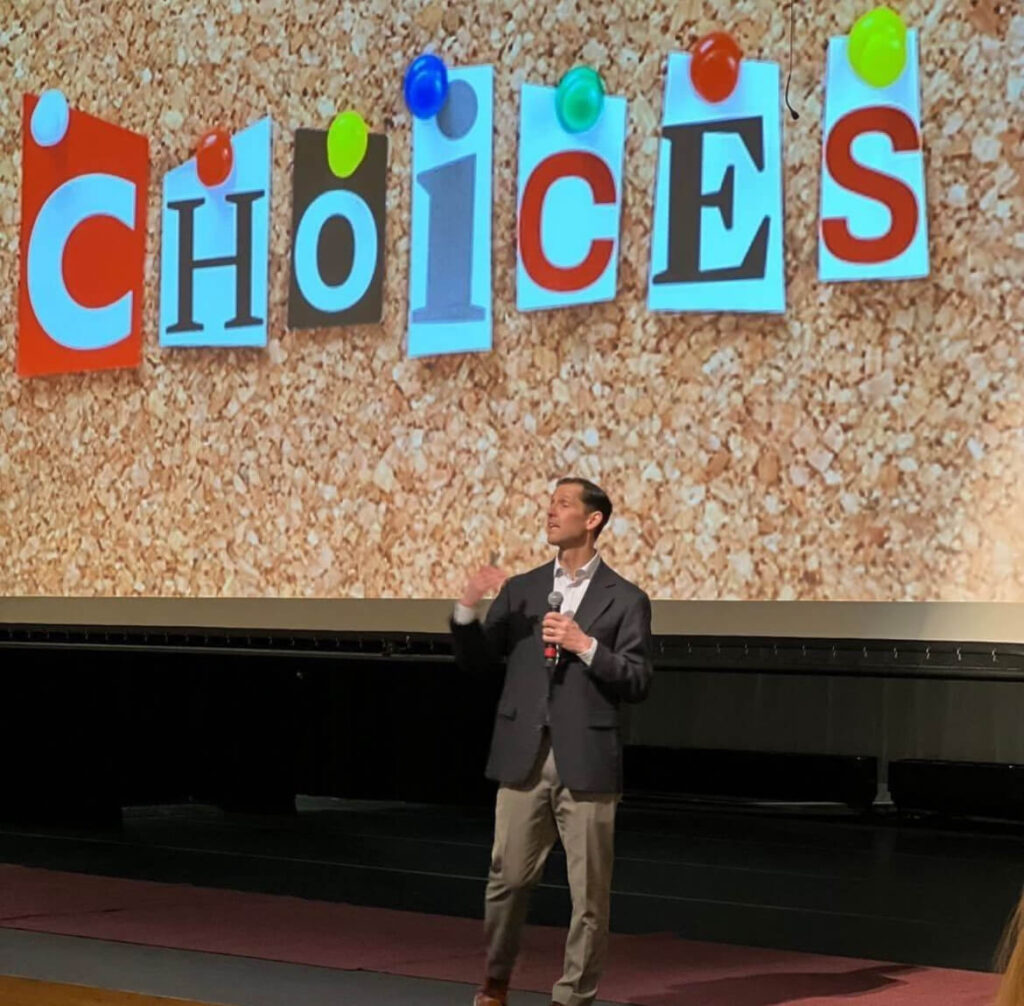Lucas van Binsbergen ’27
Every year, the Episcopal Academy invites speakers to present various topics to the student body, bringing a diverse array of experts and notable figures to engage the student body. This year, speakers have presented on topics ranging from cybersecurity to literature and the arts. The selection process for these speakers can often be long and arduous, as speakers are selected based on various criteria.
Michael Letts, Head of Upper School, explains, “[The suggestions of speakers] usually comes through a particular department, either an academic department or even the administrative department. For Rick Clark, the college counseling team came to not just me, but to Mr. Marino, Mr. Torino and Dr. Locke last year and said that he might be a very good speaker for our students and for our parents around the college process.”
On January 31, Rick Clark, assistant vice provost, executive director of undergraduate admission at Georgia Institute of Technology, and author of The Truth about College Admission, was invited to speak to the Upper School. Through anecdotes of his personal experiences, Clark focused his speech on the philosophy of “get to do vs. have to do,” and how one should apply this philosophy to everyday life and the college process.

Photo courtesy of @ea1785 Instagram
After a speaker is chosen, such as Clark, EA begins to plan a date and time for the speech. “We usually plan a fair way in advance. For example, for Rick Clark, I think we locked that in in July. So six to eight months, usually, it depends,” says Letts.
Upper School speakers are chosen for multiple reasons, including the level of interest they would present to students, budget, and availability. Tracy Motley, Upper School math teacher and coordinator of the STEM Speaker Series at EA discusses the speaker selection process. “I worked with the alumni office to reach out to anyone who may be an alum. And then we have to listen to some of the past speaker’s speeches to make sure that it’s something that would be interesting,” Motley says.
Budget and financial constraints play a role in the speaker selection process as well. “There’s also budgetary constraints and we have a generous budget but you know, sometimes people we want to bring in like Neil deGrasse Tyson, is $100,000. We can’t afford that. But last year, we did have Leland Melvin who’s a former astronaut,” says Motley.

Photo courtesy of @ea1785 Instagram
Preston Lubiniecki ’27, says, “I think that it is important as students, to listen to Upper School Speakers because they can be inspiring and they can motivate us to set goals for ourselves. We always learn something new as well, and it is cool for them to share their unique life experiences with us.” Kevin Groenhuysen ’24, however, disagrees with Lubiniecki’s sentiment. Groenhuysen comments, “Sometimes, I enjoy listening to Upper School speakers, but they are typically redundant. They are interesting but can be redundant.”
As the selection process for inviting another speaker unfolds, EA is optimistic about its plans to host a speaker in May. As Motley notes, “It takes us months to find the right speaker that can come during the time that we are available that can fit to our budget and more importantly, we need somebody who we think will be a dynamic speaker.”